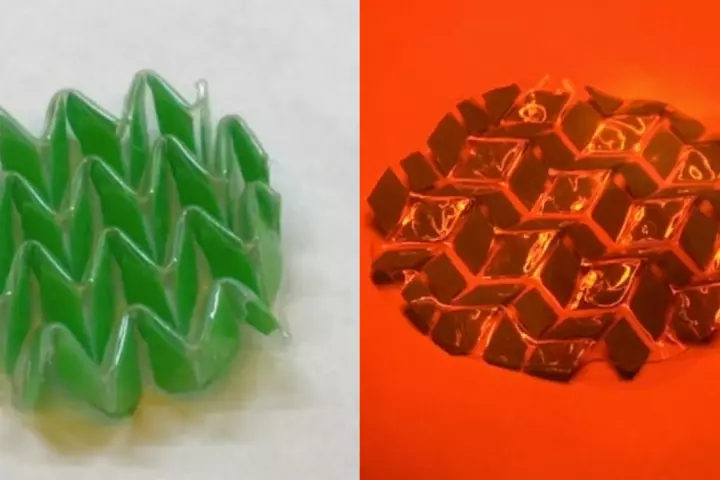University of Colorado
-
Space debris is a serious problem that won’t be going away anytime soon, but researchers have put forward a novel way to keep things in check, making a case for charging satellite operators an “orbital-use fee” to reduce the risk of collisions.
-
We've already heard about experimental self-healing concrete, that can repair cracks within itself. Now, scientists have gone a step further, utilizing bacteria to create building materials that can be grown on-site – and that regenerate when broken.
-
Nowadays, the Milky Way is a pretty quiet galaxy – but just a few million years ago its central black hole sent off huge flares of radiation.
-
Anthropologists have developed a new method to conduct important tests on ancient bones without destroying them.
-
Engineers from MIT and the University of Colorado have developed a new microfabrication technique and used it to produce the smallest 3D transistors ever made, measuring about a third the size of the current leading commercial products.
-
Researchers at CU Boulder are working on a new material that responds to light and heat by shifting between complex, pre-programmed shapes. Not only will it allow you to cheat at peg board tests, but it also holds promise in many applications in manufacturing, robotics, and biomedicine.
-
Aerogels are among the best thermal insulators, but their cloudy appearance doesn't work for windows, one of the worst offenders for letting heat escape a building. Now, researchers at Colorado University Boulder have found a way to make them transparent, recycling a beer by-product in the process.
-
In order to be an entrepreneur, it helps if you're not afraid of taking a risk or two. Well, a University of Colorado Boulder study indicates that if you lack the entrepreneurial spirit, it might help to become infected with a parasite known as Toxoplasma gondii.
-
To say “Antarctica is cold” will surprise nobody, but just how cold it can get might. Researchers from NSIDC have now identified the coldest places on the planet, where the mercury plummets to almost -100° C (-148° F) under specific conditions.
-
Evidence is growing for a ninth planet lurking on the edges of the Solar System. Objects out there move in ways that suggest an unseen world is pulling on them, but new calculations suggest that there is no Planet Nine – these distant objects might just be jostling each other like bumper cars.
-
A new breakthrough at the University of Colorado is the latest advance in the burgeoning realm of anti-aging science, demonstrating how a chemically altered nutritional supplement may well reverse aging of the blood vessels, in turn giving cardiovascular health a vital boost.
-
A team of scientists has studied 25 years' worth of satellite data, and calculated that the sea level isn't rising at a steady rate, it's accelerating. If the trend continues, the total sea level rise could be twice as high as previous projections by 2100.
Load More











